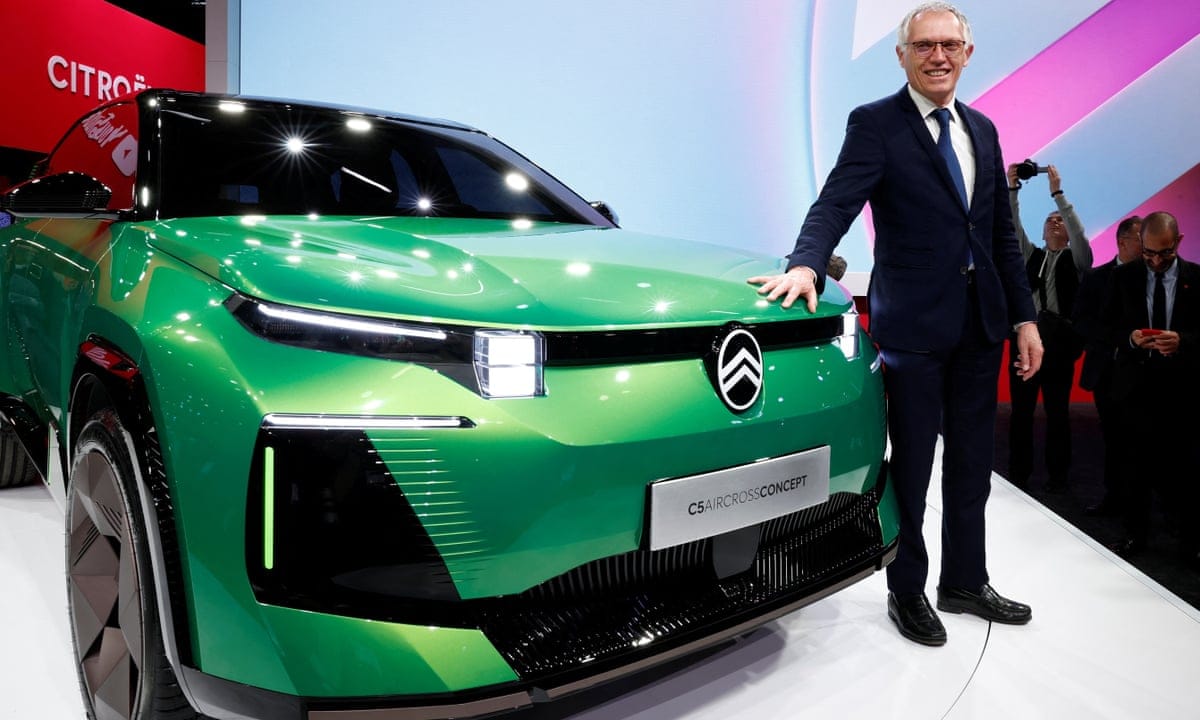Leaders of two major European car producers have highlighted concerns about speeding up Europe's shift to electric cars amid ongoing EU disputes over phasing out traditional combustion engines. Carlos Tavares from Stellantis (owners of Peugeot, Vauxhall, Jeep and Citroën brands) along with Martin Sanger, sales head at Volkswagen passenger vehicles, voiced these concerns during the Paris auto show to counteract those resisting this eco-friendly change.
Tavares emphasized that delay in transition would result in higher production costs rather than a smoother switch from old models for new ones due to maintaining both systems concurrently on the assembly line—a costlier approach he refers as a "trap." Sanger, aligning with Tavares' viewpoint, urged governments at their earliest convenience towards phasing out combustion engines.
The next few years are critical for many of Europe’s key car manufacturers while the EU tries to counter China-imported EV competition via imposition on import tariffs up until 45%. This pressure has forced some producers already retracting their original strategies to phase out combustion engines.
Sander, managing Volkswagen's passenger car sales and marketing department, expressed his hope that politicians will display clear commitments towards an electric future which should concurrently ignite customer demand for EV cars—his sentiments echoed at the Paris motor show, a prominent industry gathering each year.
Under immense pressure following profit warning due to weak US demands in September, Tavares conducted multiple media appearances on Monday alone; he also participated several events during this timeframe. When interviewed by French radio RTL channel, apart from not ruling out job cuts and potential plant closures or brand sell-off—which the company had already hinted at earlier about UK plants risk specifically —Tavares stated that efforts would be necessary to keep up with Chinese competition for sustained profitability.
Adding a different perspective was Stella Li, executive vice president of BYD (a large conglomerate from China), who criticized the proposed EU import tariffs as unjustly high and unfair towards European consumers—potentially dissuading less affluent ones from EV purchases. She emphasised that these levies are not a justified judgment, voicing concerns about their impact on consumer choices at this significant juncture in the auto industry's evolutionary journey to more sustainable practices and technologies worldwide.
Read next

Ryanair plane had only six minutes of fuel upon Manchester landing, records show
Flight Narrowly Avoids Disaster After Storm Diversion
An inquiry has been launched after a Ryanair flight, struggling against severe winds during storm Amy last week, landed at Manchester Airport with only six minutes’ worth of fuel remaining.
The aircraft had been transporting passengers from Pisa, Italy, to Prestwick, Scotland, on

"Qantas customer data for 5 million exposed as hackers release info post-ransom deadline"
Hackers Leak Personal Data of 5 Million Qantas Customers on Dark Web
A cybercriminal group has released personal records of 5 million Qantas customers on the dark web after the airline did not meet their ransom demand.
The breach is part of a larger global incident affecting over 40 companies,

Investors flee record-high UK stocks as EU set to hike steel tariffs
Investors Withdraw Record Sums from Equity Funds Amid High Market Valuations
Data reveals that investors in the UK have withdrawn an unprecedented amount of money from equity funds over the past three months, driven by concerns over soaring stock market valuations.
According to the latest figures from Calastone, the largest

